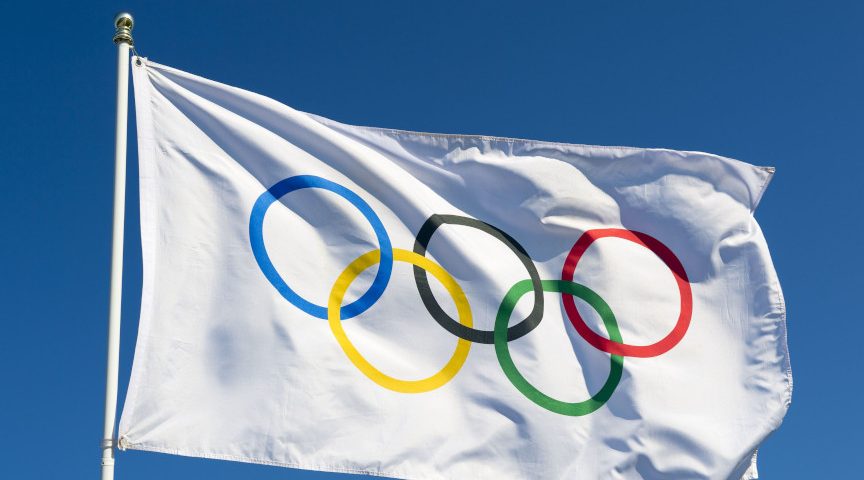Olympic Spirit – A Mockery

The Final Rehearsal (Part Seven) Olympics Football Comes of Age
February 14, 2021
Olympic Spirit – Racist Failures
February 14, 2021Olympic Spirit – A Mockery

By Satish Sekar © Satish Sekar (August 18th 2020)
A Mockery of de Coubertin’s Olympic Ideals
For reasons detailed in previous articles St Louis’ Olympic Games of 1904 was a racist disgrace before, during and, in South Africa’s case, afterwards too. London’s Olympic Games – the next – bore little comparison in that respect, but it tolerated a shameful exposition of racism that disgraced Olympic ideals.
A larger contingent of white competitors was sent by South Africa than they had four years earlier – the first since that country’s race ban, which had been imposed by white British colonial racists.
So, what about the Football Tournament? Despite its football history, South Africa did not send a team – even an all-white one. Perhaps, the fact that South Africa was not a member of FIFA yet told against them as well.
The tournament was organised by the host’s FA on behalf of FIFA. This may explain South Africa’s absence from the Football Tournament in 1908. But the FA knew that South Africans had not only played in England but had done so for its (the English) FA. For example, a tour of Germany in 1899 involved a South African, Wilf Waller, playing for the English side.
Why then, was it so hard to include South Africa in Olympic Games Football Tournaments, especially in 1912 – they had joined FIFA by then?
Responsibilities for the Race Question in Sport
Racism would rear its head and, in the case of South Africa’s involvement in the Olympic Games before the Great War, the shameful racist doctrine that excluded all non-white competitors, was implemented by British colonial authorities of South Africa. The Boers had been schooled in the dark arts of racism by Britons abroad.
Even at its inception, racism had no place in the Modern Olympic Games’ ideals – well that was the theory, but sadly not the practice. Remember the founder of the Modern Olympic Games, Baron Pierre de Coubertin, demolished the racist attitudes of the organisers of St Louis’ Games.
Racism had no place in Olympic ideals – sadly, sexism did, and in football too. But the practice was vastly different from the ideals. South Africa’s position in 1905, even if it was made by British colonial administrators, should not have been tolerated by the International Olympic Committee (IOC).
Disgraceful
Early days or not, the British organisers of the Olympic Games should have been instructed to denounce the treatment of Olympic athletes Len Taunyane and Jan Mashiane and insist that all athletes regardless of race are welcome. And the IOC should have supported the Tswana athletes. Neither batted an eyelid, let alone taking a stand, and nor did they support the Tswana Olympic veterans in any way.
The IOC should also have made it clear to South Africa that a contingent that discriminated on race grounds was not welcome and that an all-white party would result in no South Africans being allowed to compete at London’s first Olympiad. The IOC failed that test miserably.
Instead, the disgraceful race ban in South Africa’s selection for the Olympic Games remained in force until South Africa was suspended from the IOC in 1964 and then expelled. Meanwhile, all-white South African competitors competed at several Olympic Games, utterly flouting the Olympic Spirit.
When South Africa was readmitted to the Olympic Games in 1992 Apartheid had been conquered and the racist rule preventing non-white athletes participating for the country at the Olympic Games was consigned to the past. The legacy of that shameful past failure by the IOC and others to defend the Olympic Spirit in practice
Historic
Len Taunyane and Jan Mashiane should be accorded an important place in Olympic Games history. Despite the reasons that they were originally in St Louis, they remain the first African athletes to complete a race in the Modern Olympic Games – their place in history is secure.
And the football was also historic but very strange as despite its membership of FIFA, which was not rescinded for almost six decades, South Africa never competed in a recognised international tournament until Apartheid had been overthrown.
Despite that the first African to play in the FA Cup was not as many think, Bill Perry, in the famous Stanley Matthews final. It was nearly a century earlier. In fact, the Cape Town born Briton, William Rawson, won the FA Cup, refereed it and lost the final in the mid-1870s. He also played for England.
There were others. Alex Bell came from South Africa and played for Scotland. There was a tour of Basotho players in 1899 organised by the Orange Free State FA. They were black players from what is now Lesotho. And there were more after the turn of the century. Wilf Waller played for Tottenham Hotspur and Southampton among others. He was the first South African to play in England’s football leagues – for Bolton Wanderers.
In this context, the failure of South Africa to play in any international tournament is odd – it was way before football took a stand against racism.

